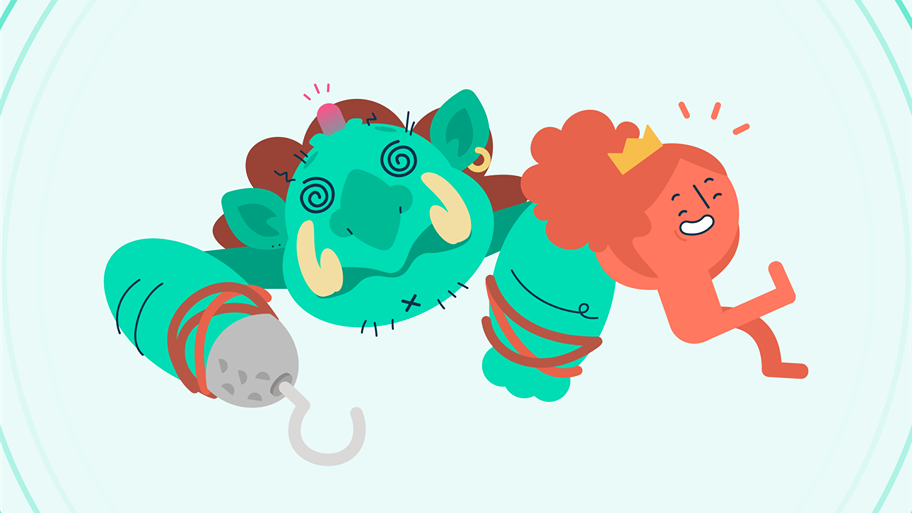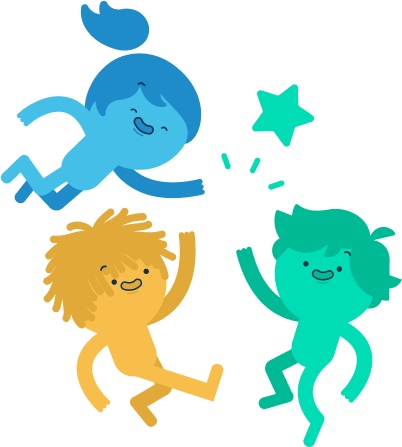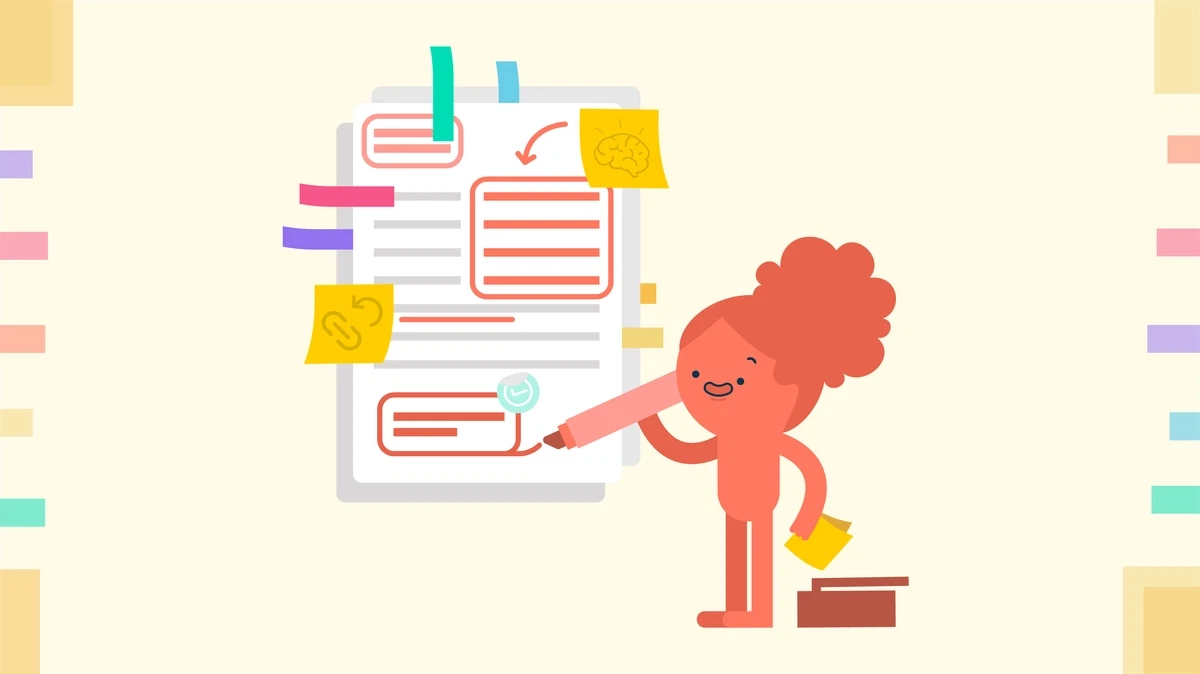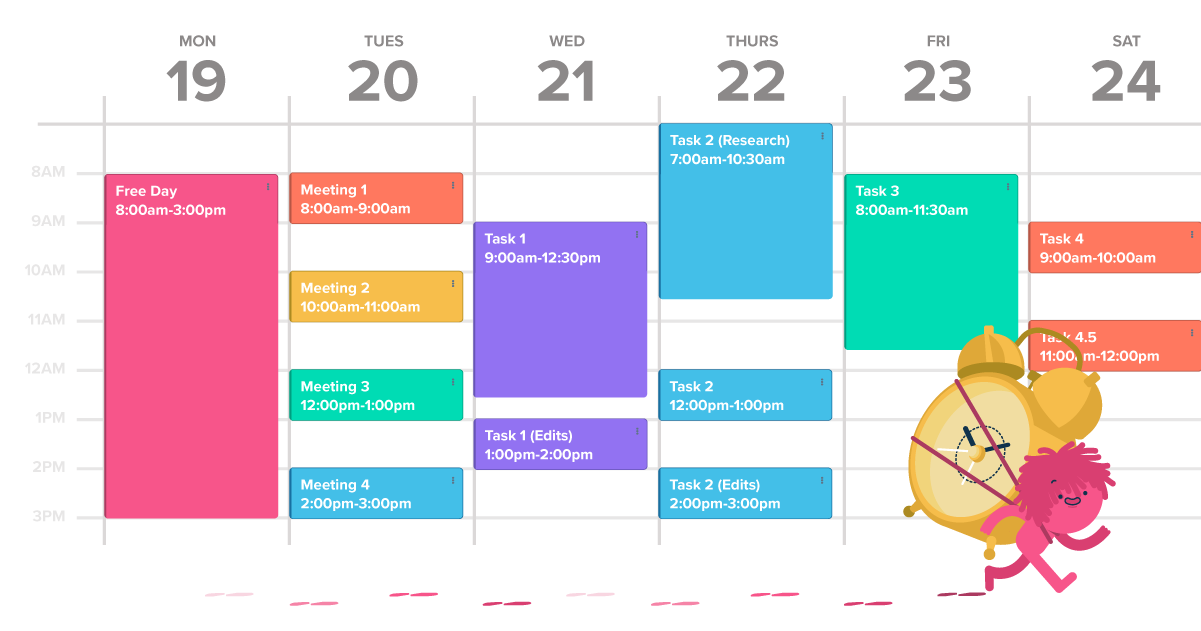I’ll be the first to admit that I don’t handle internet trolls very well. I’ve gotten into numerous online arguments, which have only left me upset, irritated, exasperated, and wondering why social media had to be invented in the first place. But I’m getting ahead of myself. Let’s start with a definition, shall we? What exactly is an internet troll?
They See Me Trollin’: Internet Troll Definition
‘Miss Granger, you foolish girl, how could you think of tackling a mountain troll on your own?’ – Professor McGonagall, Harry Potter and the Philosopher’s Stone.
Let’s use the Urban Dictionary for this one:
Internet Troll: An internet troll, or simple troll in internet slang, is someone who posts controversial, inflammatory, irrelevant or off-topic messages in an online community … with the primary intent of provoking other users into an emotional response or to generally disrupt normal on-topic discussion.
OR
Internet Troll: Someone who takes pleasure in causing drama by arguing with people without wanting or accepting anyone’s response, also known as a ‘Justin’.
(To be honest, I had no idea trolls were called Justins – sorry to anyone named Justin.)
OR (my personal favourite):
Internet Troll: A mythological internet being that lives under an internet bridge. Loves to hunt for innocent netizens. Common tactics: antagonizing other netizens by posting racist or offensive comments. Weakness: being outwitted or unable to antagonize others.
So, as you can see, just like their fairytale counterparts, internet trolls are ugly, sadistic people (or even bots) who want attention and take pleasure in provoking others by saying anything inflammatory, hateful, offensive, or even downright hurtful. They literally enjoy what they’re doing, which is frightening. And the comments they leave can be examples of gaslighting and manipulation.
If you give into the troll, you’ll often find yourself getting angrier and stooping down to the troll’s level, where it just becomes a proverbial bloodbath of insults, swearing, and derogatory comments … until you either slam your laptop shut in frustration or someone else steps in and says, ‘leave the troll and ignore it – you won’t get anywhere.’ Until the troll responds to that comment, and so on …
Example: I sometimes try to have civilised conversations on social media about complex issues. Of course, one of the arguments I got involved in was abortion and women’s rights. A couple of religious people commented, with some of them saying frightful things like, ‘Well, a woman should just keep her legs closed, then she won’t have this problem!’ So, of course, I tried to *politiely* suggest that it’s more to it than a women’s chastity. Like it takes two to tango, why do we always blame the woman, what about abortion for medical emergencies, etc.? Well … that comment didn’t go down well. After some back and forth, this troll eventually said to me,’ I deserve the death penalty for saying abortion is OK’ – to which I replied, ‘Ironic since the death penalty is also a form of murder like you believe abortion to be.’ And then the troll said, ‘No – the difference is that the death penalty is deserved.’ (Note: as I discuss below, sometimes what you think is trolling isn’t actually. In this example above, the other person was technically expressing his differing opinion on a very complex issue. However, I began to label him as a troll when he deliberately said inflammatory, misogynistic things, wouldn’t participate in meaningful discussion, and devolved the conversation into insults and almost a death threat!

The best way to deal with online trolls is to … NOT engage with them, at all!
In the Beginning… There Was … A Troll: Internet Troll Origin
Now, I know I’ve been referring to trolls as mythical creatures in tales and stories, but actually, the word troll comes from ’a kind of angling where a lure is dragged through the water to provoke a feeding frenzy amongst the fish’ (this is from a research paper titled DON’T FEED THE TROLLS!). However, I think referring to internet trolls as the ugly, stupid, aggressive trolls in folklore is also pretty appropriate 😉.
Disclaimer: as pointed out in an excellent article I read, perhaps the term ‘troll’ is too tame or even nice for what actual online trolls do, which is often racism, misogyny, xenophobia, and being harbingers of dangerous disinformation campaigns.
The jury’s out on when exactly the term internet troll came into being, but some sources suggest the term dates back to as early as the 1980s, with the initial origins of the word coming from the verb ‘trolling’ rather than the noun ‘troll’. If you’re interested in history, you can read more about the word ‘trolling’ used by US navy pilots in the 1970s. And for a comprehensive look at the more recent origins and evolutions of the term, here’s a super informative article from Gizmodo.
Online Trolls: The Different Types (Namely the Bad, the More Bad, and the Ugly)
Yes, trolling has gotten so bad that we even have different types of trolls. According to an article on Mashable, there are (at least) ten types of trolls, but I’ve chosen five to discuss briefly:
- The troll who always asks, ‘why is this news?’ in an attempt to mock or downplay an issue that is serious or meaningful to someone.
- The ‘do-no-harm’ troll. So apparently, a ‘good’ troll exists, but I don’t buy it. Apparently, this type of troll likes to post weird, confusing, nonsensical things that are nonthreatening and nontoxic. But still … why would anyone want to waste their time doing this? So yeah, this troll highlights the stupidity and narcissism of trolls.
- The ‘wet blanket’ trolls are those annoying entities who enjoy raining on everyone’s parade. No matter how light-hearted the discussion, there’ll always be *that one* who has to ruin it.
- Example: this is a serious topic, but a popular radio presenter in South Africa is sharing his stage 4 cancer journey on social media, hoping it’ll do some good for those struggling, too. And, of course, there was *that one* troll who just had to say, ‘Why do you have to share this with everyone on social media? Keep this to yourself.’
- Ah, here’s the ‘bot’ troll, also what Mashable calls the ‘broken-record’ troll. These bots (and sometimes humans) trawl the internet, looking for the same theme, and then they post some inflammatory comment, which is always the same damn comment. You can notice these types of trolls by their social media profile: hardly any followers/friends and weird or nonexistent profile pictures.
- And last (but unfortunately not least), we have the ‘bad people’ trolls. These are just the awful humans who enjoy gaslighting, manipulating, and being as controversial and ugly as possible just for the sake of it.
And these five points bring me to …
Inside the Dark Mind: Internet Troll Psychology
The thing is, trolling can get really bad. It is gaslighting, manipulation, and bullying, and in many cases, trolls want to create fear and doubt, especially on highly contentious socio-political issues. And sometimes, internet trolls may try to manipulate your perception of important issues (shall we talk about the COVID-19 conspiracy theories?) or even have illegal content that they use to manipulate, hurt, or defame other people. You even get political organisations employing trolls to manipulate public perception in state-sponsored internet propaganda (incredibly dangerous). In other words, trolling knows no depth.
But an important question to ask is WHY? WHY do people do this?
Well (sadly), I’m no psychologist. But I’ve read a good few articles on why trolls troll. Here are some of those reasons:
- It’s the anonymity of the internet (and lack of policing) (also, trolls usually create a fake identity/new person), which loosens our social inhibitions, according to psychologist John Suler. In other words, people behave differently online than they would in person. There’s also solipsistic introjection, where trolls create a character of the person they’re trolling, thereby dehumanising them.
- There’s an underlying psychopathy or personality disorder (such as narcissistic personality disorder). Many trolls display what is called dark triad personality traits: narcissism (egotistic), Machiavellianism (manipulation), and psychopathy (cold, callous, lack of empathy and responsibility, impulsivity). The dark triad can also be extended to the dark tetrad, which includes sadism.
- They are sadists – they genuinely enjoy hurting others. And often, high self-esteem can contribute to trolling too because if people enjoy what they’re doing, this boosts self-esteem (contrary to popular belief, trolls can and do have high self-esteem). Sadism can also exist in the form of you watching and enjoying what trolls are saying on social media (this is called vicarious sadism). Also, you can call these types of sadistic trolls’ snerts’!
- They have low affective empathy, meaning they cannot share their emotional pain well.
- They want validation and attention (this is also known as vulnerable narcissism). And if you don’t give it to them, they can get aggressive. But, for the most part, many trolls are just grandiose narcissists and don’t need validation from you.
- They are good at predicting what can hurt people (taken from Evita March, The psychology of Internet Trolling). In other words, while they are stupid for doing what they do, trolls can (sadly) be extremely intelligent.
- They have a high negative social potency, leading them to torment others (and enjoy it).
- It comes down to group behaviour and the environment. You know the idea that says your behaviour is the outcome of who you surround yourself with? Well, it’s the same for online communities. If people are in a virtual place where trolling is commonplace, they’re more likely to start trolling, too.
- On the opposite end, people who are lonely (or insecure) may also be prone to trolling. This is because ‘loneliness represents a state of chronic frustration and unmet need, [which] can trigger aggression toward others as a way to discharge tension or express oneself’. I fundamentally believe that people who aren’t happy with themselves – or are struggling with overwhelming negative feelings – are more likely to troll and hurt others.
- Trolls can also be jealous and lash out at people they are jealous of.
- Trolls are not necessarily cyberbullies (BUT what they do is definitely a form of bullying, especially the trolls who are aggressive and deliberately vicious and antagonistic). Why? Because cyberbullies, like bullies in general, try to hurt and put others down to make themselves feel better (low self-esteem issues in some cases). For trolls, well, if they’re a psychopath, narcissist, or sadist, they genuinely enjoy what they are doing to you, and you cannot appeal to their humanity at all. Thus, it is important to understand that there is a distinction between a troll and a cyberbully. But this distinction can get murky, in my opinion. For example, if someone keeps insulting people on a discussion thread … would this be trolling or bullying to you? In all honesty, I’d say both. The person is deliberately trying to torment you, waiting for your reaction. I guess we could say the distinction lies in trolling having a broader scope, e.g.:
- throwing meaningless messages into a discussion thread,
- pranking people,
- just doing it for the ‘lulz’,
- wanting to cause mischief (whether harmless or not),
- preying upon the gullible (read about Steve Smith trolling powerful people),
- deliberately wanting to mess with people by saying whatever, whenever,
- threatening and exposing personal information, and
- using trolling for political propaganda (take this quote from alt-right leader Milo Yiannopoulos who once said, ‘trolling is a direct response to being told by the left what not to say’ and ‘[t]he trolls are the only people telling the truth.’
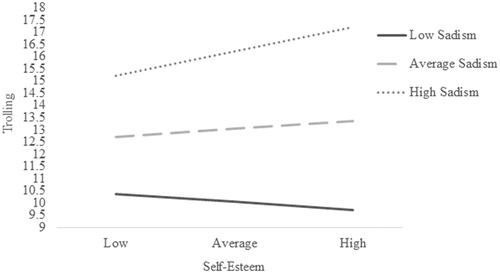
As you can see here, someone with high sadism and, consequently, high self-esteem is more likely to troll (this goes against the common belief that trolls have low self-esteem). Source
Based on these reasons, I’d also like to point out that a lot of research still needs to be conducted on the psychological makeup of a troll. Sure, some of the reasons above explain why people troll, BUT human psychology is extremely complex, so there are undoubtedly other reasons (or a combination of them) on why trolls do what they do.
If you want to read this research, you can check out ‘Constructing the cyber-troll’ by Natalie Sest and Evita March.
Extra reading if you’re interested:
Celebrity Chrissy Teigen landed herself in hot water in 2021 when it was made evident that she bullied and trolled people when she was in her twenties, even going so far as to tell someone to end their own life. She publicly admitted that she ‘was a troll, full stop.’ And then, when Teigen apologised on her social media, trolls decided to troll her back, just adding fuel to the fire, with comments like, ‘@johnlegend needs to discipline his filthy mouthed wife’ and ‘you are such a loser couldn’t handle the truth’.
Get Your Binoculars Out: 10+ Ways to Spot an Internet Troll 👀
Sometimes it’s easy; sometimes, it’s a bit more complex. For example, if someone throws a controversial opinion into an online discussion, one person may see it as trolling, but another may think, ‘hey, that’s actually a good, interesting point.’ I also think it can be easy to throw the word troll around – even when it’s not necessarily warranted. For example, I’m pretty sensitive; sometimes, I can’t take the heat. This doesn’t necessarily mean the other person was trolling me … but rather my worldview and how I cope with certain things have tainted the conversation. Sometimes, who you think is a troll isn’t one … they could genuinely be clueless, passionate about their beliefs (but NOT Hate speech), or ignorant about many issues.
However, if you suspect you’re being trolled based on comments, there are some general telltale signs, including:
- Their social media accounts have little (or no) followers/friends, and they don’t have profile pictures (or if they do, it’s either not of a person, or if it is, the photos don’t seem legit). They’re just using anonymous accounts they can quickly delete. Also, trolls tend to use common names or purposely antagonising ones.
- Their profile gives away nothing. Check out their bio/about me section – if there’s nothing there, you’ve likely encountered a troll.
- Their social media account is new. If you see ‘just joined’ and a lack of info and friends/followers, don’t bother entertaining this ‘person’ further.
- If the person is posting links to articles to ‘back up their argument’, go and check the link (IF IT’S SAFE!) to see if it’s fake news/propaganda/or just peddling conspiracy theories. Always question what you read – a lot of trolls, especially around significant political events, actively push disinformation and even create fake news stories that, at first glance, seem legit.
- Their comments are everywhere. And their comments sometimes include bad spelling and grammar (but this shouldn’t be taken as, oh, lousy grammar = troll … not at all).
- Example: I’m not sure I should admit this, but for a good example, I sometimes check out Kanye West’s Instagram account. And on each post, WITHOUT FAIL, there is one user (with a dodgy profile) who posts the same type of stuff multiple times. Whether a bot or a troll, this account still annoys people who comment and try to engage.
- They have no desire to listen to you and engage in civil, respectful conversation. They just keep fuelling the flame (i.e. you). They do NOT want to exchange opinions civilly or learn something new from the conversation.
- They gaslight you, take no responsibility for what they’re saying, and continue to hurt/attack/degrade (name-calling) or even threaten you.
- They don’t make sense, their comments are off-topic, or you get that nagging feeling that, hey, something isn’t right here …
- They’re patronising and condescending as hell.
- Example: you know how I mentioned above there’s always *that one*? Well, I asked for some book recommendations on a Facebook group for this blog post, and 99% of people replied positively with their favourite books for me to check out. Until *that one* left a comment saying, ‘You shouldn’t write on what you don’t know about.’ I replied with, ‘Um, OK? I’m a blog writer, just giving book recommendations.’ She said, ‘Well, I hope you read all the books before you review them.’ To which I said, ‘I’m not reviewing, just recommending.’ And she STILL continued to say the same thing repeatedly that I shouldn’t write a post on things I don’t know about. Eventually, I got irritated, to which she said, ‘I have issues and should calm down.’ And that’s when I checked out her pretty dodgy profile and put this down to trolling because she was pretty happy when she finally got a reaction from me.
- They use profile pictures of attractive young women, but the actual account will be filled with strange, derisive, shocking information.
* Lastly, I encourage you to take the Spot the Troll quiz. It’s harder than you think in some cases, which makes trolls scary because you don’t know WHO is behind a screen these days. The table below summarises the info I took from the quiz (I scored 6/8 – which means two fake accounts easily fooled me!).
| Troll sign 1 | Lack of personal info. |
| Troll sign 2 | There is nothing on their profile to signal anything about themselves, their family, their everyday life, etc. |
| Troll sign 3 | The account only pushes one view/similar views on extreme, controversial topics. |
| Troll sign 4 | For groups on IG or FB: there is no person or organisation behind the account. The group only pushes one narrative, suggesting any other view is not possible. |
| Troll sign 5 | They don’t bother with more local content, preferring to attract a much larger group of people with what they post. |
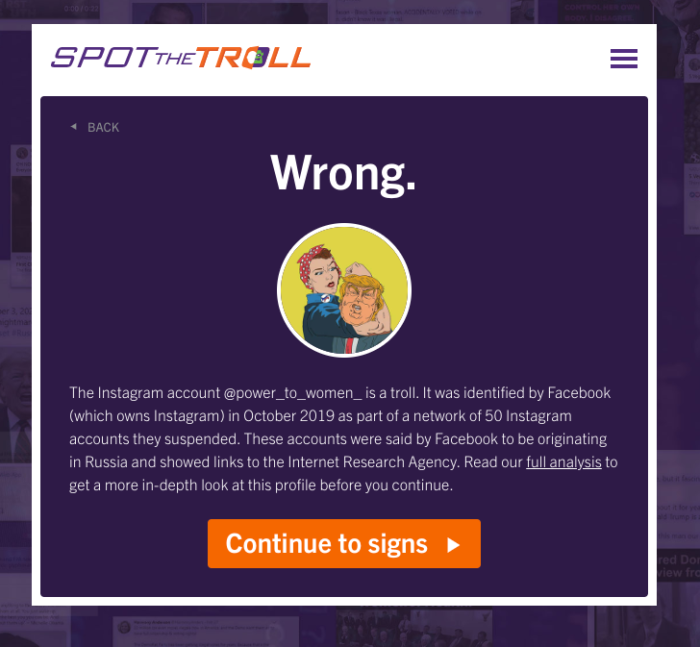
How to Stop an Internet Troll in 3 Steps
‘Their intention is not to learn or change anyone’s mind, but just to hijack any potential constructive discussion to feed their malicious ego with another person’s pain.’ – Mariana Vargas, The Psychological Profile of Internet Trolls
Unfortunately, none of us is immune to the internet troll (unless you’re like my mom, who has no social media (because it gives her the creeps) or hardly any digital footprint). Here are three steps to take:
Don’t Feed the Troll 🚫
The best way to protect yourself from trolls is the age-old-internet advice: DON’T FEED THE TROLLS. Now you might be rolling your eyes at this, but it’s true. Internet trolls feed on your reactions, so if you stop reacting, they essentially starve. Also, as I discussed above, if the trolls are sociopathic/narcissistic/sadistic, there is NOTHING you can do to stop them by interacting with them – they ENJOY making you angry and getting under your skin, which only makes them want to do it more. Unfortunately, for the most part, you cannot plead with a troll’s humanity – they either have very little of it (and they’re enjoying playing the troll game), or they’re just a damn bot.
Report and Block (Log Off) + Help Others 📵
As extra steps, you can also report and block the troll account. And if you see others being trolled, help them out by saying, ‘hey, I think this is a troll; just leave it be’ and then, once again, report and block. (Also, if social media overwhelms you, it’s time for a digital detox!).
Check Out Helpful Websites ✅
You can join online communities like HeartMob by Right to Be, which works towards ending online harassment, especially for marginalised communities. The people at HeartMob encourage those affected by online harassment and provide help by assisting with reporting trolls and bullies. You can even become a supporter, which is a wonderful initiative to take back the power from trolls! The organisation also has a fantastic resource kit to help you if you’re facing online harassment.

To stop a troll, you can also fight them by doing something good!
There are other ways to deal with trolls, such as ‘killing them with kindness’ (sometimes, the ‘troll’ might just be an upset human genuinely needing some kindness), responding with humour, or waiting it out before you respond. However, these are just preventative measures for you. The best is not to interact. If you are having an online discussion with someone and it starts getting ugly, tap out immediately. It’s not worth your time or sanity; TRUST ME!
But be careful: if things are really bad, escalate the situation. Take screenshots. Tell someone you trust. And, when necessary and possible, get the authorities involved.
Last Thoughts on Dealing with Online Trolls
‘But from that moment on, Hermione Granger became their friend. There are some things you can’t share without ending up liking each other, and knocking out a twelve-foot mountain troll is one of them.’ – Harry Potter and the Philosopher’s Stone
The internet can be an ugly cesspool of trolls. And we still have a long way to go in combatting them (but this is up to the big players behind social media platforms). Unfortunately, you can’t be like Ron, Harry, and Hermione in Harry Potter where you can take down a troll by clubbing it over its head and sticking a wand up its nose … BUT you can take action to stop them from hurting you and others online:
- Do your very best not to engage with the troll. They want you to react. They want you to get angry. If you give them your fingernail, they will devour your arm. So don’t give them one bit of you!
- Report and block trolls – either trolls enraging you or trolls hurting others.
- Take a digital detox. Seriously, even if it’s just for a week. It’ll do wonders for your mental health.
- Do something good in return, such as joining an online community to help those harassed online or positively influencing social media.
- If you have something to say, remember that you will always have differing viewpoints. Try to maintain civil, respectful, and educational conversations with someone. And if the other person can’t do that, tell them to have a nice day and turn off your notifications for that post.
I hope this post has been helpful to you. Stay safe online, and report anything that makes you or someone else uncomfortable. And remember: don’t let the trolls win; your sanity isn’t worth it. Now, put those trolls in the dungeon, where they belong!
Frequently Asked Questions (F.A.Qs)
You can recognise an internet troll by looking carefully at the social account the troll is posting from. Most troll accounts have little (or no) followers/friends, their profile gives away nothing (i.e. no about me section/bio/info about family or friends, etc.), and their social media account is new. Also, trolls leave their comments everywhere, and they do not want to listen to you and engage in civil, respectful conversation. For example, if you see a profile on Twitter, look carefully at the content they’re posting: does it only promote ONE radical, controversial view? Does it show shocking, divisive information? And what kinds of news articles are they posting? Can you verify that those articles are from a legit source? Lastly, if you get that nagging feeling that something isn’t right with someone’s comments or profile, TRUST THAT!
You shouldn’t become an internet troll. Ever.
The best way to deal with internet trolls is to ignore them and report and/or block them. In other words, DON’T FEED THE TROLLS is the best advice! This is because, for the most part, you cannot appeal to a troll’s empathy and humanity – many of them deliberately want to hurt and antagonise you because they derive pleasure from it. So the only way to deal with them is to ignore them completely. If the situation is really bad, escalate it to the authorities and keep your screenshots as evidence!
In the context of the internet, trolls are people (sometimes bots) who, for the most part, take pleasure in provoking others by saying anything inflammatory, hateful, offensive, or even downright hurtful. They enjoy what they’re doing, and the comments they leave can be examples of gaslighting and manipulation. There are different types of trolls, with some articles suggesting that there are even ‘harmless’ trolls who post weird, nonsensical stuff that isn’t necessarily harmful to anyone. Some trolls do it for the ‘lulz’ – which isn’t funny at all. Essentially, the internet troll has evolved over the years to mean anyone on the internet who leaves hateful, inflammatory, weird, and off-topic comments, which can extend to political propaganda and disinformation campaigns.
Yes, trolling can be a punishable offence, such as being banned from social media platforms. Legal action can be taken when a person begins harassing, bullying, stalking, or threatening someone.
You can find troll posts anywhere and everywhere on the internet, especially on social media platforms. Twitter, Instagram, and YouTube are notorious for trolling. I’m not even going to mention those other awful sites like 4chan ...
The word troll comes from the fishing industry and refers to ’a kind of angling where a lure is dragged through the water to provoke a feeding frenzy amongst the fish’. However, there is tons of varying info on why it’s called trolling and where the term internet troll originally came from. You can check out our article for more info on the history of the term and its evolution!
Absolutely not! You should never respond to internet trolls because you cannot appeal to their empathy or humanity, and most trolls are doing what they do on purpose to get a reaction from you. So if you don’t give them a reaction, they can’t troll!
The psychology behind it is complex, but trolls exist for many ‘purposes’. Some trolls genuinely enjoy riling up and hurting others (because they are sadists/narcissists/sociopaths), and others are employed to spread political propaganda. Some trolls even just do it for the fun of it. But, basically, a troll has no actual purpose, and they shouldn’t exist!
How we ensure our content is accurate and trustworthy?
At StudySmarter, we have created a learning platform that serves millions of students. Meet the people who work hard to deliver fact based content as well as making sure it is verified.

Gabriel Freitas is an AI Engineer with a solid experience in software development, machine learning algorithms, and generative AI, including large language models’ (LLMs) applications. Graduated in Electrical Engineering at the University of São Paulo, he is currently pursuing an MSc in Computer Engineering at the University of Campinas, specializing in machine learning topics. Gabriel has a strong background in software engineering and has worked on projects involving computer vision, embedded AI, and LLM applications.
Get to know Gabriel